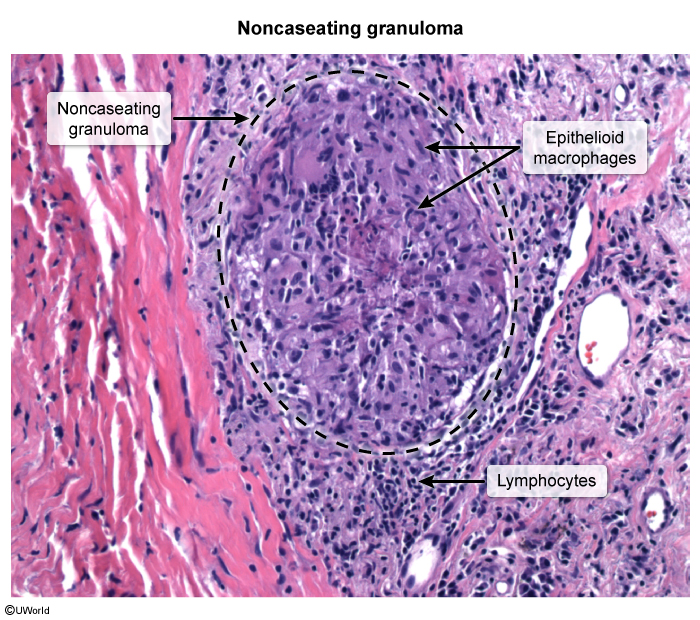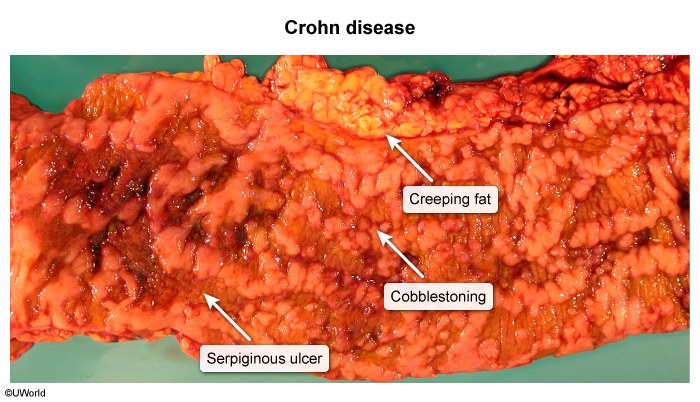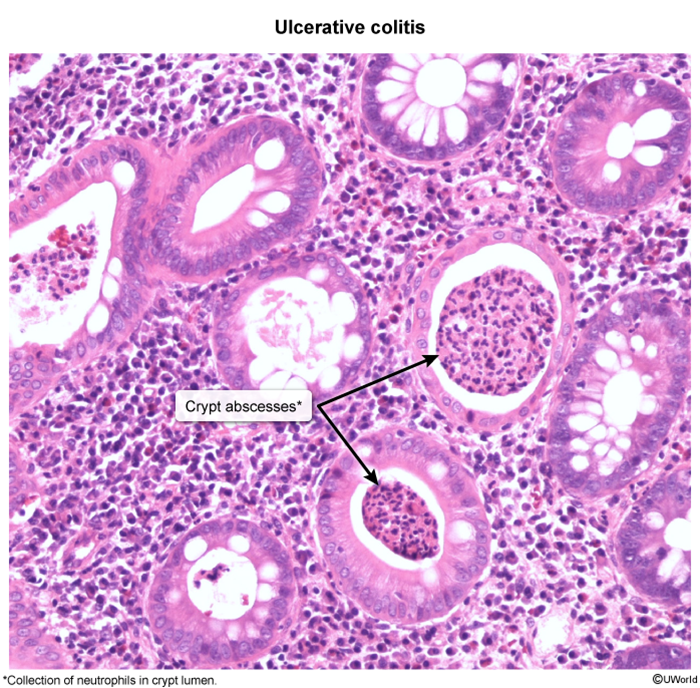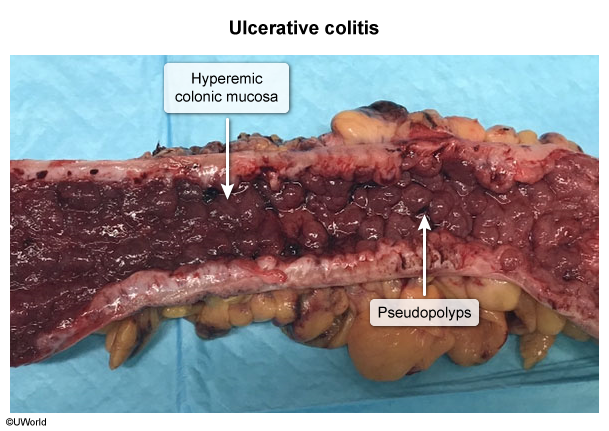Inflammatory Bowel Disease (IBD): Crohn Disease And Ulcerative Colitis
Article Sections
Introduction
Inflammatory bowel disease (IBD) encompasses a group of chronic, relapsing inflammatory conditions of the gastrointestinal (GI) tract. This article focuses on Crohn disease (CD) and ulcerative colitis (UC). There can be some overlap between these disorders in clinical practice (ie, indeterminate colitis), and they are both characterized by an inappropriate immune response leading to intestinal inflammation with clinical presentations that greatly vary among patients.
Pathophysiology
The exact cause of IBD is not fully understood but involves genetic predisposition (as mutations related to mucosal immunity regulation [eg, toll-like receptors] and to barrier function increase susceptibility), a microbiota imbalance (which may trigger an immune response), and immune dysregulation (which may result in failure to regulate inflammation, particularly involving TNF-alpha).
These factors and environmental influences (eg, diet), lead to a persistent inflammatory response targeting GI mucosa, which causes a breakdown of the intestinal barrier. Antibodies directed against
Continue Learning with UWorld
Get the full Inflammatory Bowel Disease (IBD): Crohn Disease And Ulcerative Colitis article plus rich visuals, real-world cases, and in-depth insights from medical experts, all available through the UWorld Medical Library.
Unlock Full AccessFigures
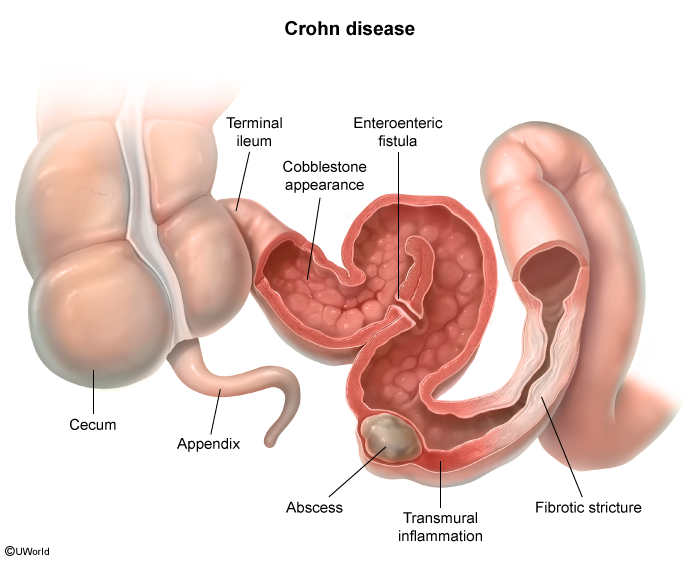
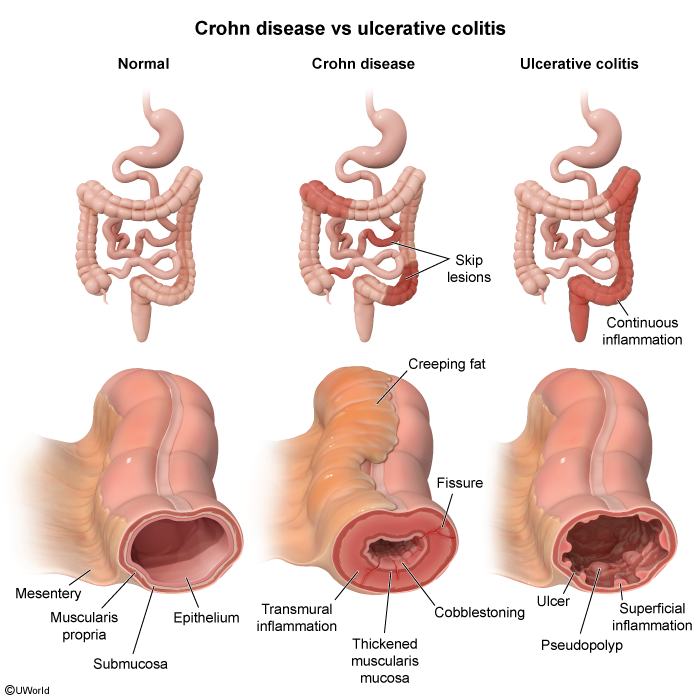
Images
